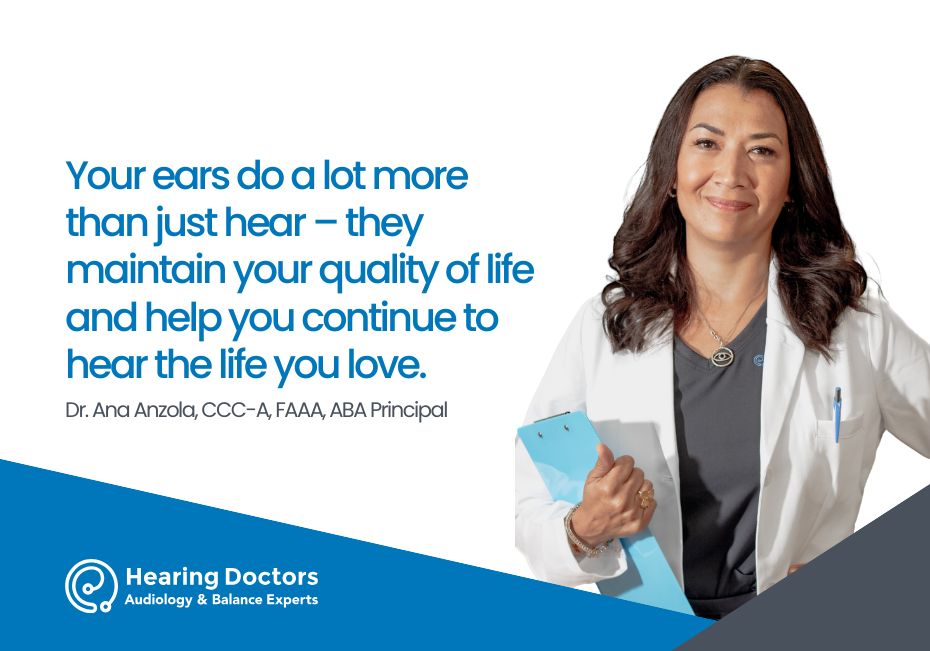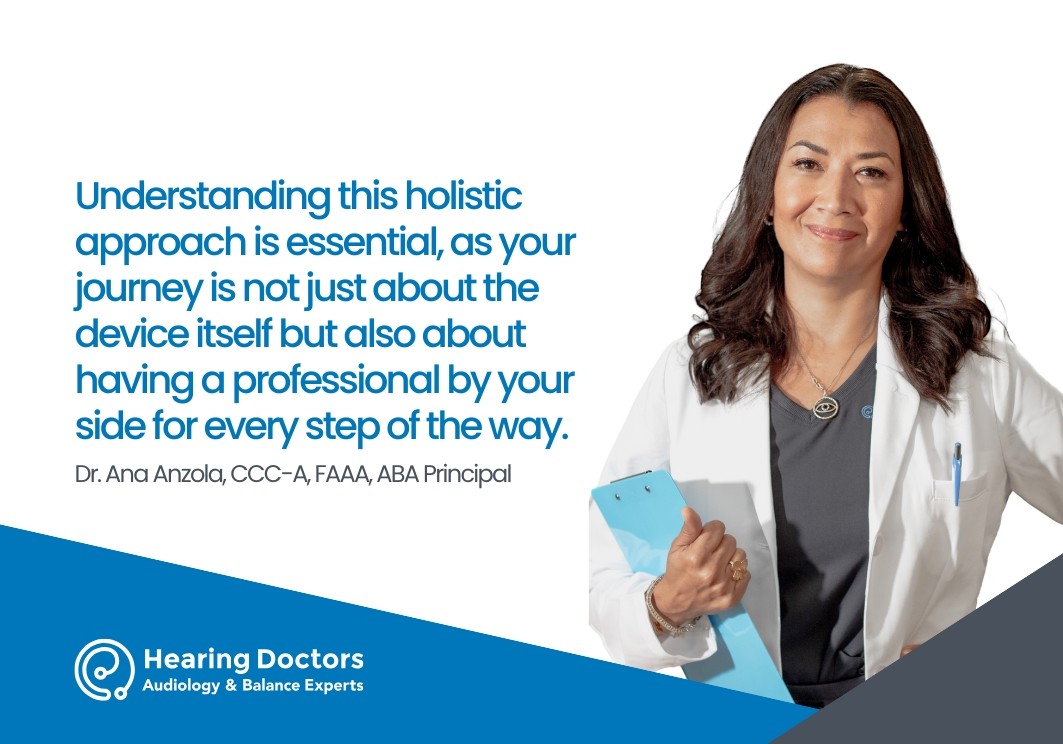Sep 9, 2015
Dr. Ana
Anzola, CCC-A, FAAA, ABA Principal
Your hearing aids sit in your ears all day – a place that is dark and moist, and a perfect breeding ground for fungus and bacteria. Some of the bacteria that can grow on a hearing aid can cause irritation in the lining of your ear canal. This irritation can lead to redness, itching, swelling, pain, and an unpleasant odor.
Use The Right Cleaning Tools
Cleaning your hearing aids with a cloth isn’t enough to get rid of all the germs and bacteria. Alcohol pads will ruin the surface of your hearing aids, so it’s best to use non-alcohol based disinfectant wipes or spray using a clean cloth. Ask your audiologist to recommend their preferred brand.
How To Disinfect Your Hearing Aids
To properly clean your hearing aids, follow these simple steps every night:
Thoroughly wash and dry your hands before removing your hearing aids.
Wipe your hearing aids with a clean, dry tissue.
Disinfect the surfaces of your hearing aids with a non-alcohol based disinfectant towelette.
Keep Your Hearing Aids Safe
When you take your hearing aids out, always clean and disinfect them, and store them in their case. Never put them in your purse or pocket, or leave them on the counter top. Not only will they just get dirty again, but they could easily be damaged or broken, or get into the hands of a small child or the mouth of a pet.
Additional Use & Care Tips
Disinfecting your hearing aids is only one part of the care they need. Use these hearing aid maintenance tips for a more complete use and care strategy.
Spending a little time taking care of your hearing aids each day will keep them working their best for years to come, and help prevent infections and irritation. Speak to your audiologist about the best way to care for your specific type of hearing aids, and enjoy a lifetime of healthy hearing.
Popular Blogs

Jun 3, 2025
Dr. Ana
Anzola, CCC-A, FAAA, ABA Principal
Understanding Types of Hearing Loss: Sensorineural, Conductive, and Mixed

May 21, 2025
Dr. Ana
Anzola, CCC-A, FAAA, ABA Principal
What Impact Is Artificial Intelligence Having on Hearing Aid Technology?

Apr 28, 2025
Dr. Ana
Anzola, CCC-A, FAAA, ABA Principal
Do You Think You’re Too Young for Hearing Loss?

Apr 15, 2025
Dr. Ana
Anzola, CCC-A, FAAA, ABA Principal
The Best Hearing Aids in 2025: Insights From a Doctor of Audiology


